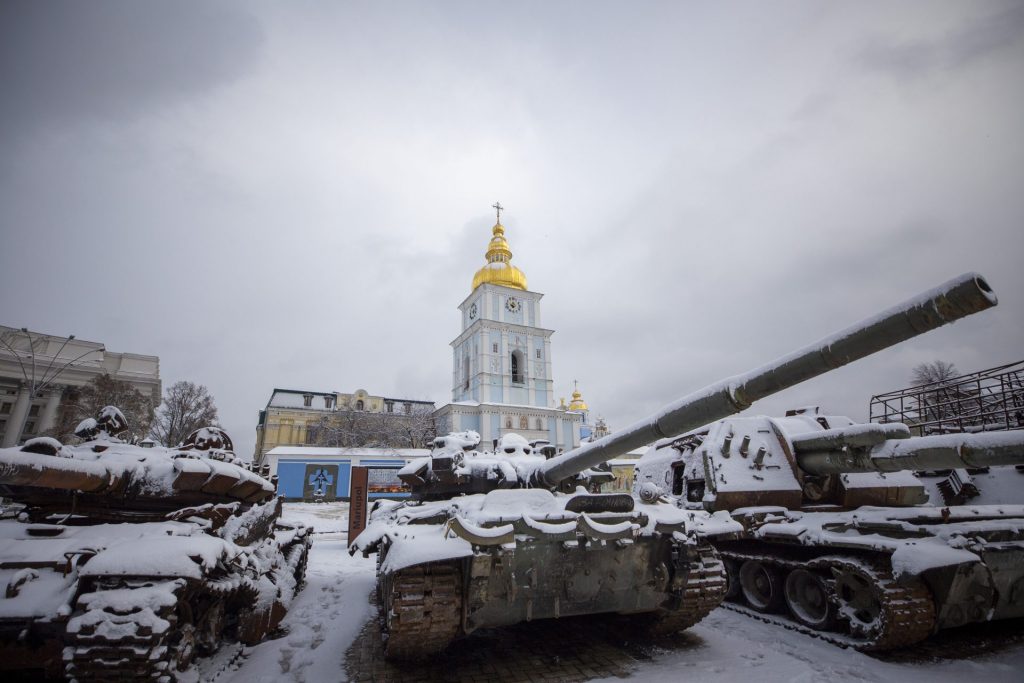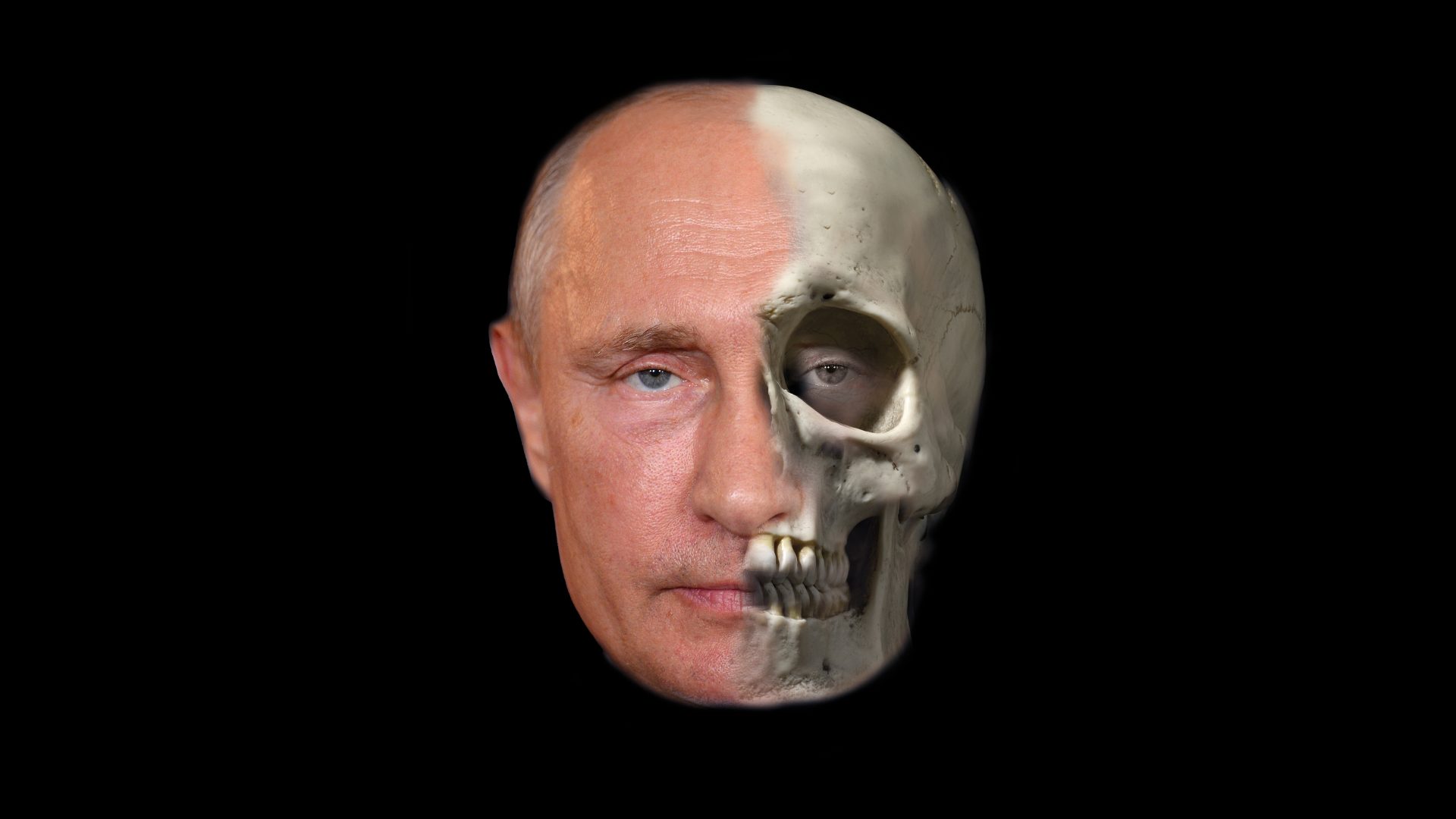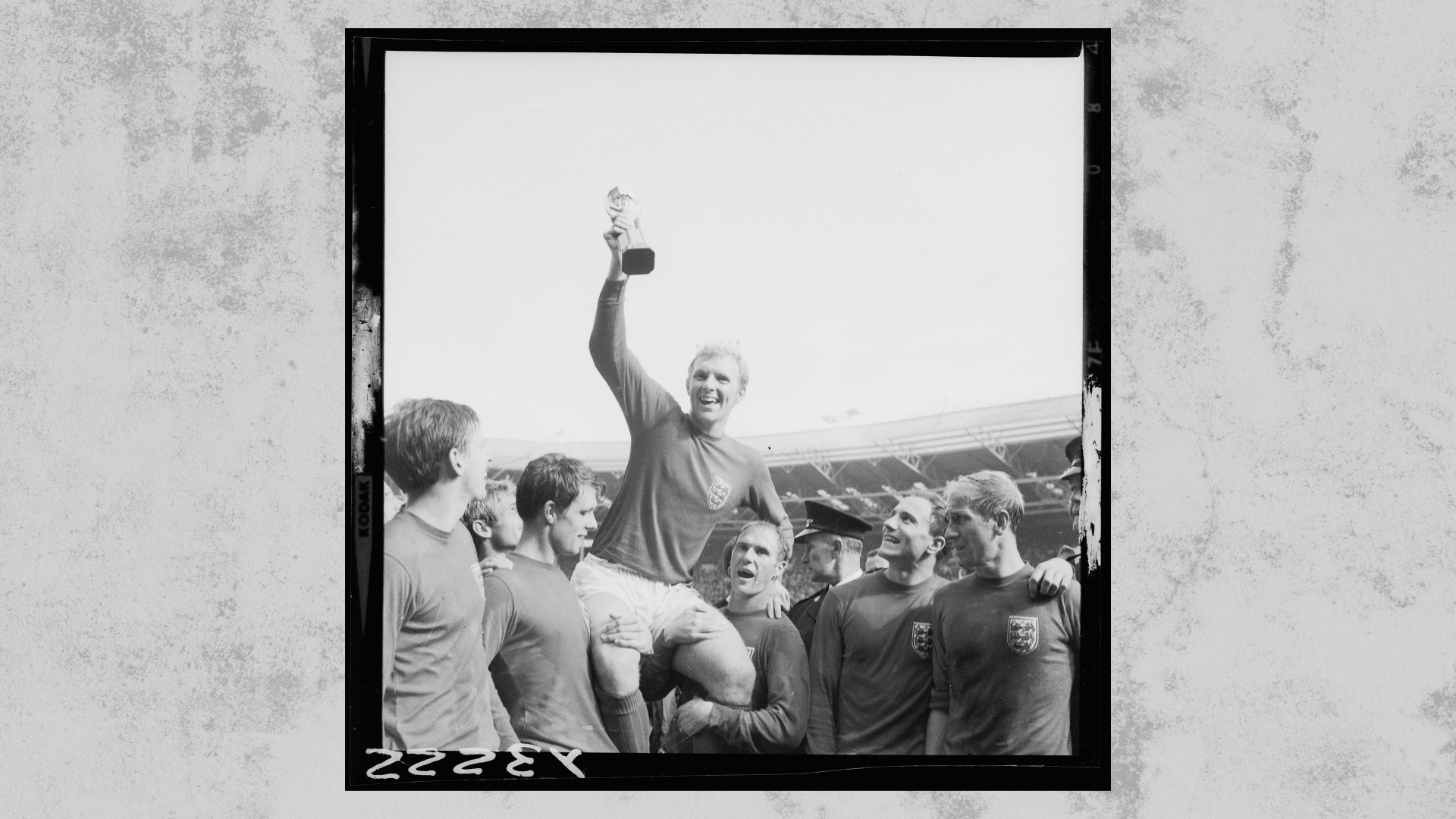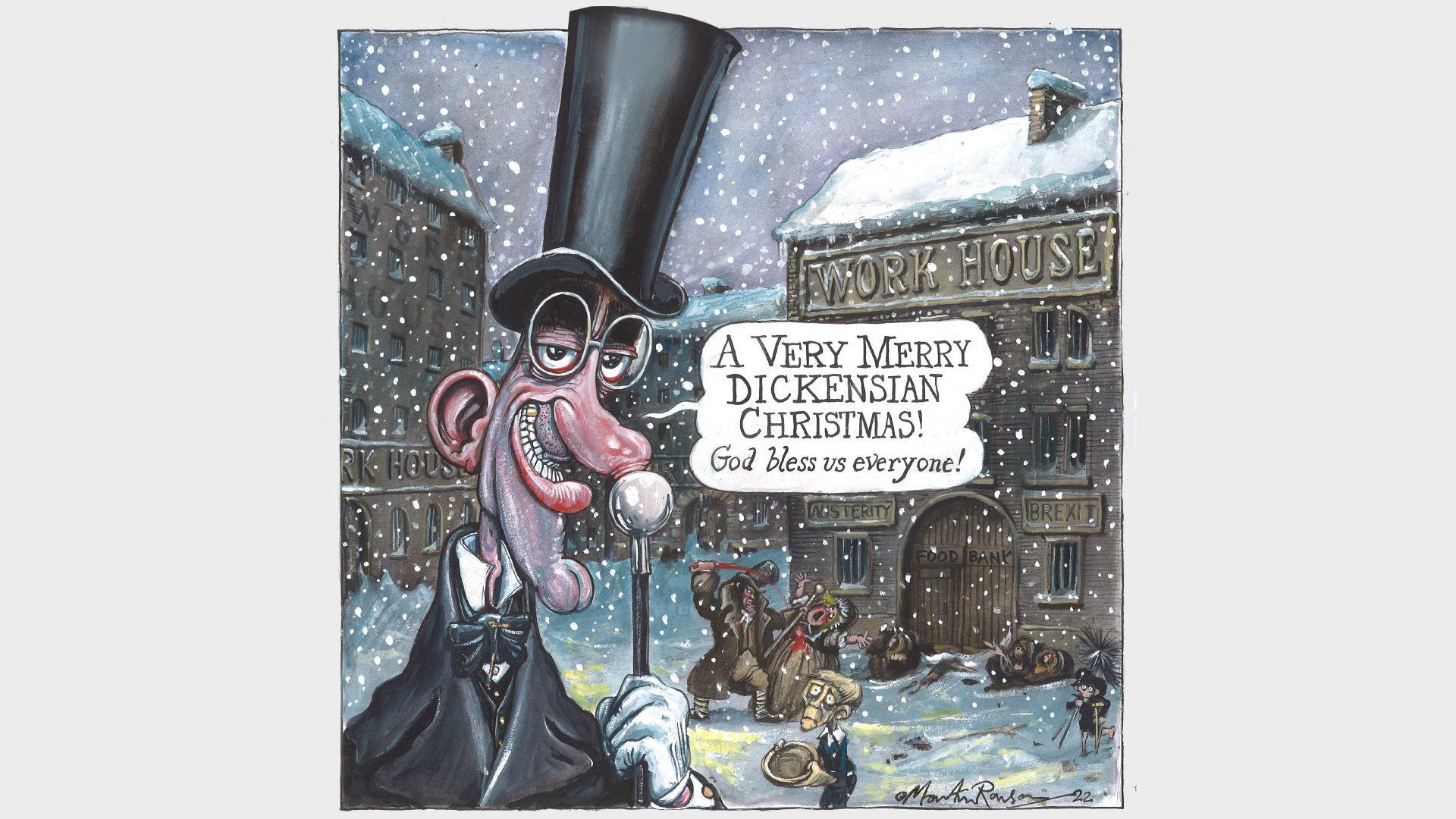Sipping sparkling wine in Bishkek, Kyrgyzstan, Vladimir Putin bemoaned the collapse of trust with the west preventing a settlement in the Ukraine war. In the next breath, without mentioning the aerial bombardment aimed at freezing the Ukrainian population into submission, Russia’s president appeared to hold out prospects for a peace deal.
“The settlement process as a whole, yes, it will probably be difficult and take some time,” he told reporters attending the Eurasian Economic Union summit, “But one way or another all participants in this process will have to agree with the realities that are taking shape on the ground.”
This was vintage Putin: nasty, brutish and short on honesty. He remains indifferent to the suffering caused by his war; seemingly oblivious to the damage to Russia’s economy and standing; determined to turn Ukraine into a Russian colony. His “peace” terms are more mind games.
In the real world, Ukraine’s autumn counter-offensive has ousted Russian forces from more than half of the territories they occupied in the initial weeks of the war. The seizure of Kherson, the Black Sea port, means that virtually all the fighting is now taking place in areas Putin has proclaimed as Russia’s sovereign territory.
As winter temperatures plummet, the battle lines are likely to remain unchanged, absent a “winter war” like Finland fought against a Soviet Union invasion force in November 1939. The Finns’ heroic resistance inflicted heavy casualties but ended in March 1940 when they were forced to cede six percent of their territory.
Ukraine, led by president Vlodomor Zelensky, has no interest in a Finnish-style moral victory over the Russian invader. Kiev’s public position remains unchanged: the expulsion of Russian forces from all Ukraine territory, including Crimea.
To those who worry that victory for Ukraine would spell a catastrophic defeat for Putin with unpredictable consequences for a nuclear-armed state, Kiev has a ready answer.
“Instead of thinking of how to help Russia survive and become a normal member of the international community, it’s time to accept the fact that this Russia cannot be a normal member of the international community,”. Ukrainian foreign minister Dmytro Kuleba told the Wall Street Journal. “I don’t think the world will fall apart if Russia falls apart. But it will be the people of Russia who will make their country fall apart, as it happened with the Russian Empire” in 1917,” he added.
Kiev’s defiance reflects the spirit of a nation under constant missile attack as Putin’s new field commander Sergei Surovkin pursues tactics employed in Syria and Chechnya: terrorizing the civilian population, wholesale destruction of energy infrastructure, and the creation of thousands of refugees, each in turn aimed at overwhelming the Ukraine state.
Despite the suffering and the mounting economic cost (GDP is estimated to shrink by almost one third this year), Zelensky and his team are determined to stifle any signs of “peace talk” in western capitals.

On his recent trip to Washington, President Macron drew criticism from Ukraine and the Baltic states for saying that the west should “not humiliate Russia”. Instead, the French leader spoke about a deal involving security guarantees for Russia, among other parties.
Artis Pabriks, Latvia’s deputy prime minister, told the FT: “The idea that the Russian invasion [of] Ukraine can be ended by the west giving security guarantees to Russia is falling into the trap of Putin’s narrative that the west and Ukraine are responsible for this war and Russia is [an] innocent victim.”
President Biden, in a gesture to Macron, did signal he was willing to talk to Putin, something that has been off the table since the summer. Direct contacts between the US and Russian intelligence services have also continued, partly to relay concerns about Putin’s threat to use nuclear weapons. The other agenda item was a prisoner swap.
Earlier this month, Russia released US female basketball star Brittney Griner imprisoned on a minor drug possession charge in exchange for Victor Bout, the Russian arms dealer who has served 12 years of a 25-year sentence in a US jail. “It wasn’t our goal to move from these talks to any others. But of course, they create a certain atmosphere, it’s true,” Putin commented wryly.
The on-off speculation about peace talks was triggered after an intervention last month by General Mark Milley, chairman of the US joint chiefs of staff. In comments at the Economic Club in New York, General Milley said the onset of winter presented a window of opportunity to avoid further heavy bloodshed in Ukraine.
General Milley drew an analogy with 1916 in World War I. In private, he also drew parallels with the 1973 Arab-Israeli war when Dr Henry Kissinger brought Egypt and Israel to the peace table. Left unsaid is that there is no one of Kissinger’s stature in the Biden administration.
Hardened Washington observers doubt that General Milley was “freelancing”, and suspect he was floating a trial balloon. “Milley’s about as political as they come,” says a former senior US official who has worked for Democratic and Republican administrations, “he had to be operating with cover from someone in the White House.”
So what is going on? At one level, Macron’s comments are a statement of the obvious: at some point all wars end. First there is a cessation of hostilities, followed by a truce, and some form of negotiated peace.
Peace negotiations can be one-sided in the extreme (the Versailles treaty which dismembered the German empire after WWI) or a more balanced arrangement (the end to the 1973 Arab-Israeli war which Gen Milley cited). A notable exception is the armistice which ended the Korean War, where the conflict is frozen with no peace treaty (a potential outcome in the Ukraine war).
At present, neither Ukraine nor Russia have shown any interest in negotiations. Kiev believes it has battlefield momentum, highlighted by the autumn counter-offensive and recent long-range drone strikes on air-fields in Russia. This is a notable escalation but provoked by Russia’s unrelenting assault on Ukraine’s power networks and civilian buildings.
Nor does Putin show any sign of backing down, according to Ian Bremner, head of the Eurasia consulting group. Bremner cites a call between Olaf Scholz, German chancellor, and the Russian president, the first with a western leader since September.
“Putin justified Russian bombings of Ukrainian civilian infrastructure as an appropriate response to Ukraine’s bombing of the Kerch bridge to Crimea,” says Bremner, “and he had no interest in discussing territorial delineation, annexation or any other issues crucial to potentially stabilising the active war.”
As a publicity stunt, Putin drove a Mercedes over the repaired Kerch bridge, demonstrating to rattled Russians that the war is not going so badly after all. Yet, behind the bravado, there is every sign of desperation in Moscow.
Russian TV commentators are becoming increasingly hysterical, their rhetoric bordering on genocidal. These grim talking heads happily exhort Putin on nightly talk shows to drop nuclear weapons or other WMD over Ukraine to end the war.
Bremner says Nato intelligence believes the most extreme near-term military scenarios are in fact increasingly unlikely: Russia is not about to launch a “false flag” dirty bomb attack or tactical nuclear weapon; Russian troops are unlikely to collapse, allowing Ukraine to take Zaporizhzhia and Kherson region and cut off Crimea from Russian defences (a potential red line for Putin).
While Russian troops have suffered appalling casualties (latest numbers in Washington are above 110,000 deaths with huge numbers of wounded), they still have plenty of drones and cruise missiles, bolstered from Iranian stockpiles.
From the western vantage point, the combination of steady (if qualified) military support for Ukraine is working. The economic warfare highlighted by the newly enforced $60 price cap on Russian oil may take more time. Together these measures are “bleeding” Russia without risking a step-change military escalation.
Meanwhile, western unity is holding; governments have coped pretty well with the inflationary surge in energy prices, albeit at a high financial cost; and countries like Germany and Italy are finally weaning themselves off cheap Russian oil and gas.
The billion dollar question is public opinion. The war has faded as a news item in the US. In France and Italy, far left and -right voters are hostile to the war and sympathetic to Putin’s grievances about Nato enlargement eastwards. Add to this, the prospect of further energy shortages next year and the picture looks less rosy on the continent. “European leaders like Macron are treading on thin ice,” says a former top EU diplomat.
The wild card is whether Putin will call for a sudden truce this winter, having stabilised his front lines. A ceasefire would be rejected out of hand by Ukraine. But it might appeal to those Europeans who would prefer to look the other way.
The danger is that a ceasefire followed by a breakdown in talks could be the prelude to a fresh Russian offensive in the spring to topple the Kiev government. Hence the warning by US secretary of state Anthony Blinken that there should be “no phoney off ramps” for Putin, who remains ultimately responsible for the war.
For all the talk of peace, the more likely short-term outcome is a bloody stalemate. There seems no way for Putin to win through conventional means. The question, therefore, is not just how the war ends, but how bad it gets before it ends.
Did Ukraine blow up the Nord Stream gas pipelines?
Three months on, one Ukraine war mystery remains unsolved: who was responsible for the sabotage against the underwater Nord Stream gas pipelines linking Russia to Germany via the Baltic Sea?
Nord Stream I and II were both knocked out of action in September after two separate explosions.
Some point to self-sabotage by the Russians; others claim a clandestine operation overseen by the CIA and carried out by the Poles.
Intriguingly, some believe it was a Ukrainian special forces operation, a daring assault against underwater energy infrastructure that would be the first of its kind. It would fit a pattern of dramatic unconventional warfare in recent months.
Western intelligence and military sources are tight-lipped about whether Ukraine could have pulled it off. But one informed senior observer has quipped that the Ukrainians are “ex-Soviets equipped with sophisticated western weaponry who behave like Israelis”.




